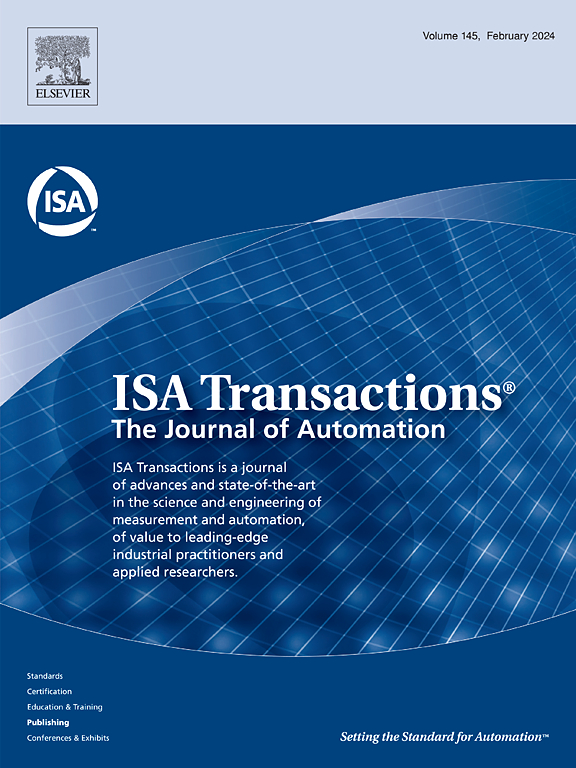利用同步传感器对电力系统低频振荡进行基于 ALOHA 和顺序聚类的鲁棒模式估计。
IF 6.3
2区 计算机科学
Q1 AUTOMATION & CONTROL SYSTEMS
引用次数: 0
摘要
电力系统低频模态的准确估计对于提高小信号的稳定性非常重要。基于旋转不变性技术的信号参数总最小二乘估计(TLS-ESPRIT)参数模型参数估计器即使在噪声条件下也能有效地工作。然而,该模型参数估计器需要有关信号模态数的先验信息。近年来讨论了不同的模型阶估计技术,它们考虑自相关矩阵(ACM)的显著特征值进行估计。由于ACM的特征值受到不良测量值和异常值的高度影响,使得这些技术效率低下且难以实时自动化。因此,为了克服上述局限性,本文提出了一种鲁棒模态估计技术,即使在存在高方差噪声和异常值的情况下也能准确地检测到信号的低频模态。因此,本文提出了一种基于湮灭滤波器的低秩汉克尔矩阵(ALOHA)技术,通过获取缺秩汉克尔矩阵来消除相量测量单元(PMU)信号中存在的噪声和离群值,然后考虑近似的低秩汉克尔矩阵来估计信号的优势模式。其中,通过将ACM的特征值分离为两个对手即信号子空间和噪声子空间,实现了顺序聚类技术(sequential k - mean++),以检测突出的低频模式的数量。然后利用估计的MO进行TLS-ESPRIT模式估计。通过实时数字模拟器(RTDS)对西部电力协调委员会(WECC)的合成信号、两区数据、实际PMU数据以及西部系统协调委员会(WSCC) 9总线系统和IEEE68总线系统的振荡功率数据进行仿真,并与最新技术进行调度比较,验证了该技术的鲁棒性。本文章由计算机程序翻译,如有差异,请以英文原文为准。
A robust ALOHA and sequential clustering-based mode estimator for low frequency oscillations in power system using synchrophasors
Accurate estimation of low frequency modes in power system are very much important for improving small signal stability. The parametric model parameters estimator known as Total least square estimation of signal parameters via rotational invariance techniques (TLS-ESPRIT) works effectively even in noisy conditions. However, this model parameter estimator requires prior information about numbers of modes of the signal. There are different Model order (MO) estimation techniques discussed in the recent past, which consider the significant eigenvalues of auto-correlation matrix (ACM) for its estimation. As the eigenvalues of ACM highly affected by bad measurements and Outliers, making these techniques inefficient and harder to automate in real time. So, to overcome aforementioned limitations, this paper proposes a robust mode estimation technique that can precisely detect the signal low frequency modes even in the presence of high variance noise and outliers. So, in this proposed work, an annihilating filter-based low-rank Hankel matrix (ALOHA) technique is implemented to obtain the rank deficient Hankel matrix to nullify the existence of noise and outliers in Phasor measurement unit (PMU) signal, thereafter approximated low rank Hankel matrix is considered for estimation of signals dominant modes. Wherein a sequential clustering technique (Sequential K-Mean++) is implemented for detection of numbers of prominent low frequency modes by segregating eigenvalues of ACM into two opponents i.e the signal and noise subspace. Thereafter the estimated MO is considered for estimation of modes through TLS-ESPRIT. The robustness of the proposed technique is validated by scheduling comparative study with recently developed techniques for synthetic signal, two area data, real PMU data of Western Electricity Coordinating Council (WECC) and oscillatory power data obtained from Western System Coordinating Council (WSCC) 9 bus system and IEEE68 bus system simulated through Real Time Digital Simulator (RTDS).
求助全文
通过发布文献求助,成功后即可免费获取论文全文。
去求助
来源期刊

ISA transactions
工程技术-工程:综合
CiteScore
11.70
自引率
12.30%
发文量
824
审稿时长
4.4 months
期刊介绍:
ISA Transactions serves as a platform for showcasing advancements in measurement and automation, catering to both industrial practitioners and applied researchers. It covers a wide array of topics within measurement, including sensors, signal processing, data analysis, and fault detection, supported by techniques such as artificial intelligence and communication systems. Automation topics encompass control strategies, modelling, system reliability, and maintenance, alongside optimization and human-machine interaction. The journal targets research and development professionals in control systems, process instrumentation, and automation from academia and industry.
 求助内容:
求助内容: 应助结果提醒方式:
应助结果提醒方式:


